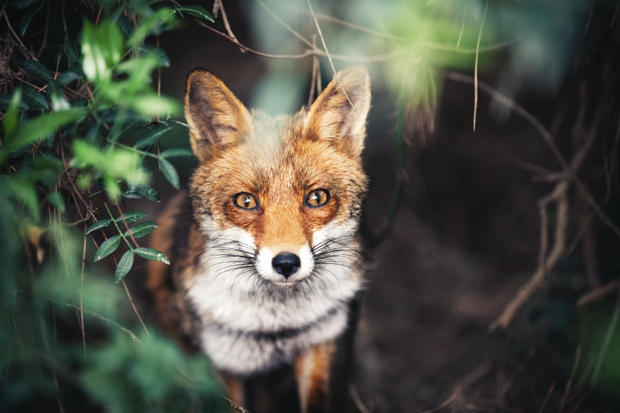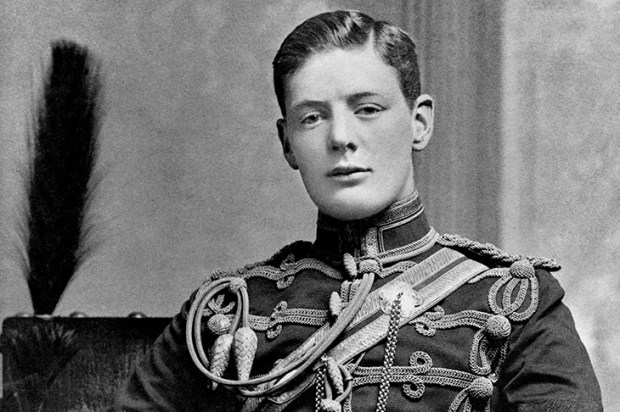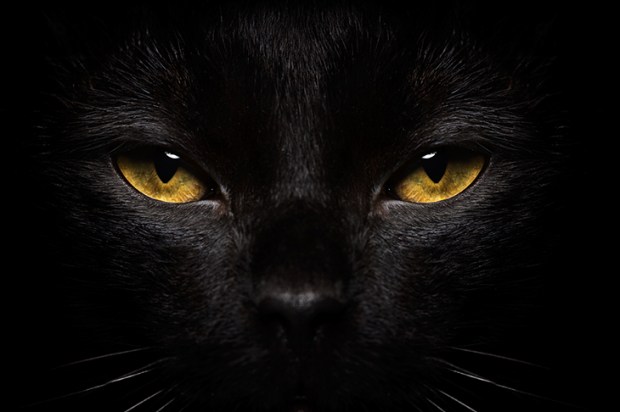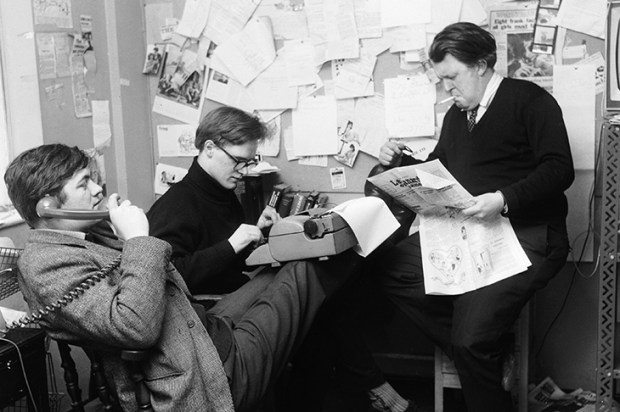Wild Lone is one of the most violent books I’ve ever read. It was published just before the last war and it doesn’t pull its punches: mothers are slaughtered with their babies; brothers and sisters are eaten alive; callous parents look on indifferently as their sick children die slowly beneath them; the few survivors almost invariably succumb to disease, cold or starvation. Every child should read it, for it tells you how the world really is.
The natural world, I mean. It was written by one of the last century’s great amateur naturalists, Denys Watkins-Pitchford, under his nom-de-plume ‘BB’ and it purports to be the biography of a ‘Pytchley fox’ called Rufus.
Rufus is simultaneously the book’s hero and villain. Because it’s written mostly from the fox’s perspective you root for him all the way — even in the dismal scene when (based on a true story, this) he manages to drown five couple of foxhounds by luring them onto the thin ice on Fawsley lake.
But you can never love him, because he’s such a ruthless bastard. Night in, night out, he kills relentlessly and indiscriminately: hens in their coops, nesting partridge, duck, moorhens, Old Zank the heron, hedgehogs, a grass snake (only once because the taste is awful), lambs, rabbits, mice, tree pipits, a kingfisher…
Now let’s fast-forward 75 years and meet one of BB’s modern-day counterparts. The naturalist Chris Packham is standing in a wood very much like the ones described— with considerably more eloquence — by BB. He is hymning the glories of what he’d probably call its ‘biodiversity’: ‘every bug, every butterfly, every bird, every mammal that comes together to make this … our greatest natural treasure.’
Warming to his cod-Churchillian theme, Packham tells us: ‘We want this place to prosper, complete, rich and wonderful for the next 500 years.’ Yes, I’m sure we can all agree with that. But possibly not with the bizarre non-sequitur that follows: ‘And the only way we’re going to do that is if we respect all of the life that lives here.’
All of it? Really? What about, say, the grey squirrels that kill off the red squirrels and wipe out the young trees by ring–barking them? What about the self-seeded sycamores that create congestion and steal the light from the undergrowth? What about the deer that eat the saplings, the badgers that eat the hedgehogs, the magpies and the jays that predate on other birds’ nests? What about the foxes that kill everything that moves?
Actually, we know what Packham thinks about foxes because that’s the point of his video (which you can watch, if you’ve the stomach, on his website). It’s part of a passionate plea to the ‘people of Britain’ to ‘prevent the return of fox hunting’, which he calls ‘psycho-pathic barbarism.’ Heartfelt, certainly. Informed? Hardly.
If Packham were just some random animal-rights nutcase with weird dead eyes and disturbingly Malthusian tendencies, this crass emotive grandstanding wouldn’t much matter. But he’s not. He co-presents some of the BBC’s most-watched nature documentaries, Springwatch and Autumnwatch, with audiences of up to four million. People take his views on wildlife seriously. This is worrying.
It’s worrying, because Packham’s BBC-endorsed view of nature — sentimental, over-reverential, laced with misanthropy — is utterly at odds with the basic truths that more observant naturalists have understood since time immemorial. Simple, obvious stuff like the fact that nature is cruel — ‘red in tooth and claw’; that without mankind to manage it, it tends not towards some gorgeous, pristine state of prelapsarian loveliness but rather towards an unholy, very unbiodiverse mess where unchecked top predators and scavengers run rampant while anything more delicate is quickly exterminated.
As a naturalist of the old school, BB knew all this. Born in 1905, he became a sickly youth and was home-educated and so free to spend much of his childhood wandering through the Northamptonshire woods, observing and cherishing nature with his painter’s eye. He also shot, but this didn’t make him a hypocrite. Rather, it enabled him more properly to appreciate the ambivalent relationship man has always had with the natural world, on the one hand as its loving guardian, on the other as its callous destroyer.
I suspect he wasn’t a foxhunting man. ‘In exchange for the pleasure man found in horse-craft and hound-craft when hunting the fox, he had given him continued life and on the face of things this seemed a good bargain,’ he writes. And: ‘Hunting with hounds is cruel, however, and man knows it to be cruel; the whole of Life is cruel, or, shall we say, unfeeling.’
But it seems to me a fair attempt at a neutral, honest assessment. (Especially when he goes on to say how brave hunting-men are…) What I like about it — and what puts it so very much at odds with anything you ever hear from any of the modern breed of naturalist, be they Packham, Bill Oddie, or even David Attenborough — is the way it sees man as a part of nature rather than as some unwelcome and irrelevant interloper.
Until the growth, in the mid-20th century, of the environmental religion, this wouldn’t have needed explaining. It was a given that God had given man dominion over the creatures of the earth, whether to use as food, transport, companions or for sport. Because people were far less deracinated from their rural origins, they were less prone to squeamishness about issues like conservation management and pest control.
Recently I wrote a piece about foxhunting and I was quite taken aback by the mix of self-righteousness and vicious misanthropy of the emails from antis wishing me to break my neck. Perhaps if they were to spent a bit more time with BB and a bit less with Packham, they might get a proper sense of perspective.
Got something to add? Join the discussion and comment below.
Get 10 issues for just $10
Subscribe to The Spectator Australia today for the next 10 magazine issues, plus full online access, for just $10.
You might disagree with half of it, but you’ll enjoy reading all of it. Try your first month for free, then just $2 a week for the remainder of your first year.














Comments
Don't miss out
Join the conversation with other Spectator Australia readers. Subscribe to leave a comment.
SUBSCRIBEAlready a subscriber? Log in